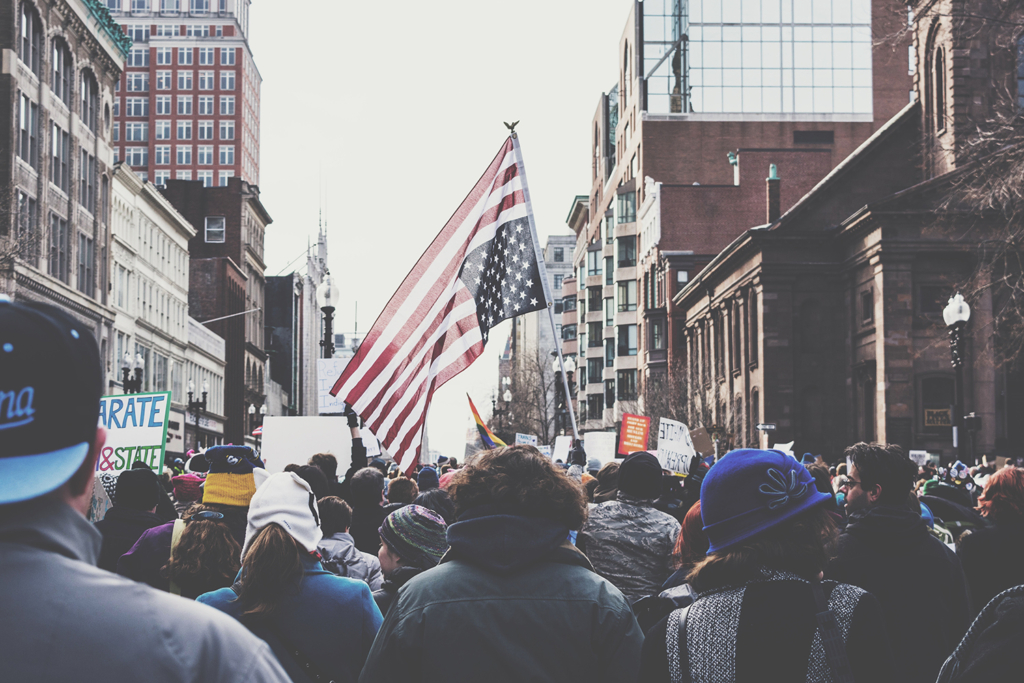It has been a politically heated time in the United States for the past couple years, although it certainly seems to have reached a climax over the past six months or so. There is a correlation between politics and psychiatry that often goes unacknowledged. It impacts both patients and psychiatrists in a big way and I feel it is important to discuss the impact of political events on mental health to provide some comfort to people feeling overwhelmed by this correlation.
Politics in and of itself does not need to be a triggering environment but it often transforms into one when opinions become argumentative and those arguments get personal. It’s difficult to keep a level head and maintain composure during these types of dialogues especially when you’re already struggling with anxiety, depression, PTSD or another emotionally draining condition.
The Impact of Politics on Patients
If patients have a history of anxiety and depression they may feel surges in these conditions during politically-heated times. Sometimes, these surges occur when they’re engaging in conversation with someone who does not share their opinions. In these cases it can be best to discontinue the conversation, remembering that exchanging ideas should be an enriching experience for all parties involved. More often than not, however, patients experience increased anxiety and depression through ‘silent’ triggers. For example, simply catching sight of the dramatic headlines or reading snippets of fear-mongering articles can cause someone with a history of anxiety and depression to experience a resurgence of their condition when outsiders may not have picked up on the cause.
I do not want to encourage patients to disengage from politics if it’s something they’re passionate about following. In fact being informed about politics can often help settle any anxieties about sensationalistic headlines and scare tactics. It is helpful to be aware that politically-heated times can impact people in different ways and it may not always be obvious why or how someone is struggling. If you know someone with a history of anxiety, depression or any other emotionally straining condition, perhaps consider a mindful and encouraging check-in to see how their doing.
The Impact of Politics on Psychiatrists
Thankfully, many patients are aware that they’re experiencing a resurgence of their condition during politically-heated times and are quick to book appointment with their psychiatrist which is the best thing they can do. However, this phenomenon can cause patients who are relapsing to flood their psychiatrists’ offices which can be overwhelming for psychiatrists. I’ve put together a few pointers for psychiatrists who are trying to manage this situation:
-
Remain Unbiased and Calm
Politics is an emotional topic for anyone to engage with. Everyone has different opinions and patients may not realize that everyone at your practice likely has their own political opinions which may or may not coincide with theirs. Of course, as a psychiatrist, it’s important to remain as calm and unbiased as possible. At the end of the day, it’s not the job of a psychiatrist to affirm or engage with political debates in the office. Patients may look for affirmation or reassurance of their opinion when describing situations that caused them anxiety or depression – but it’s vital to focus instead on helping them feel in control of their condition in any environment and long after the political drama has died down.
-
Scheduling can Help
If your practice is experiencing a sudden surge in the number of patients who are citing trauma, anxiety or depression as a result of political stresses, scheduling can help you space these patients out throughout the day so you’re not completely overwhelmed. Try to steer the conversation away from particular political issues as much as possible within each session, focussing instead on the individual and their broader experiences with their condition.
-
Lean on Your Support Group
Physician burnout is an ever-present challenge facing the psychiatric industry. One of the most effective ways to prevent and manage feelings of being overwhelmed is to develop and lean-on a support group of your own during especially stressful periods of time. Disconnect from work-related issues as often as you can and take some time to ‘come up for air’ if you’re noticing you’re starting to feel overcome by patients, politics or any combination of the two.
A Note for Everyone
It’s good to stay informed of politics and current events in general. If you’re someone who enjoys discussing politics with friends or family, try to avoid letting the conversation get ugly. There are some easy ways to prevent this: control your tone of voice, use language that is inclusive and most importantly be sensitive of the fact that there may be people around you who are already struggling with anxiety and depression.
For additional information, please feel free to email our office at Amanda.Itzkoff@gmail.com. To schedule an appointment, call our offices at 917-609-4990.
Be Well,
Dr. Amanda Itzkoff

